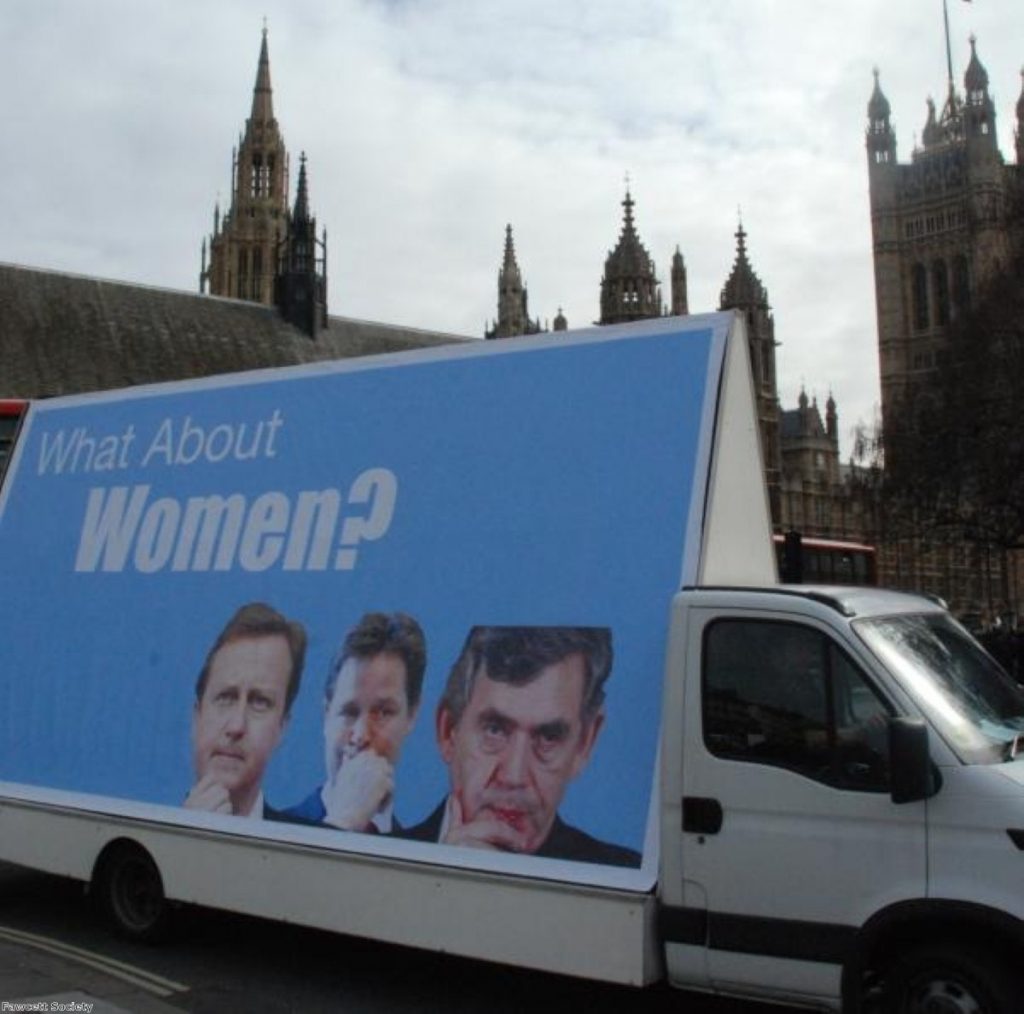Don’t forget us: Women want MPs’ attention
Women voters sought politicians’ attention in Westminster this afternoon as they campaigned to ensure they are treated to more than a ‘charm offensive’ at the coming election.
A campaign van toured parliament to raise the profile of What About Women?, which the Fawcett Society claims is the biggest ever coalition for women’s equality.
It argues that women need to be taken more seriously on issues like the economy, crime and renewing political trust.


Fawcett’s chief executive Ceri Goddard pointed out that spending cuts could affect women much more than they do men.
Proposals to expand family responsibility for caring, for example, would mean more work for women as 89% of carers are female.
Ms Goddard said: “The majority of both women and men are also more likely to vote for parties who would tackle particular barriers to women’s equality such as violence against women, media sexualisation and women’s under-representation in politics but they continue to treat these as fringe issues when they should be part of the main debates on crime, culture and democracy.”
A poll conducted by Ipsos Mori found that over two-thirds of men and women agree that the next government should ensure spending cuts do not affect women more than men.
But nearly half of women said they thought politicians did not consider women’s views enough when developing their taxation and public spending policies.
“Cuts to public services will be particularly hard on women unless handled appropriately,” Ms Goddard added.
“Over 65% of public sector employees are women and they are heavier users of frontline services.
“But politicians are simply not considering or acknowledging how their proposals could impact differently on women and men.”
Gordon Brown addressed women’s issues in his podcast at the weekend, as he marked international women’s day.
He said the government had doubled maternity pay, introduced paternity leave and the right to request flexible working, and secured record survival rates for breast cancers.
“I know some of the changes have been controversial,” he added, “but we will continue to pursue bold policies to empower women, including enabling women to break through the glass ceiling once and for all.”

